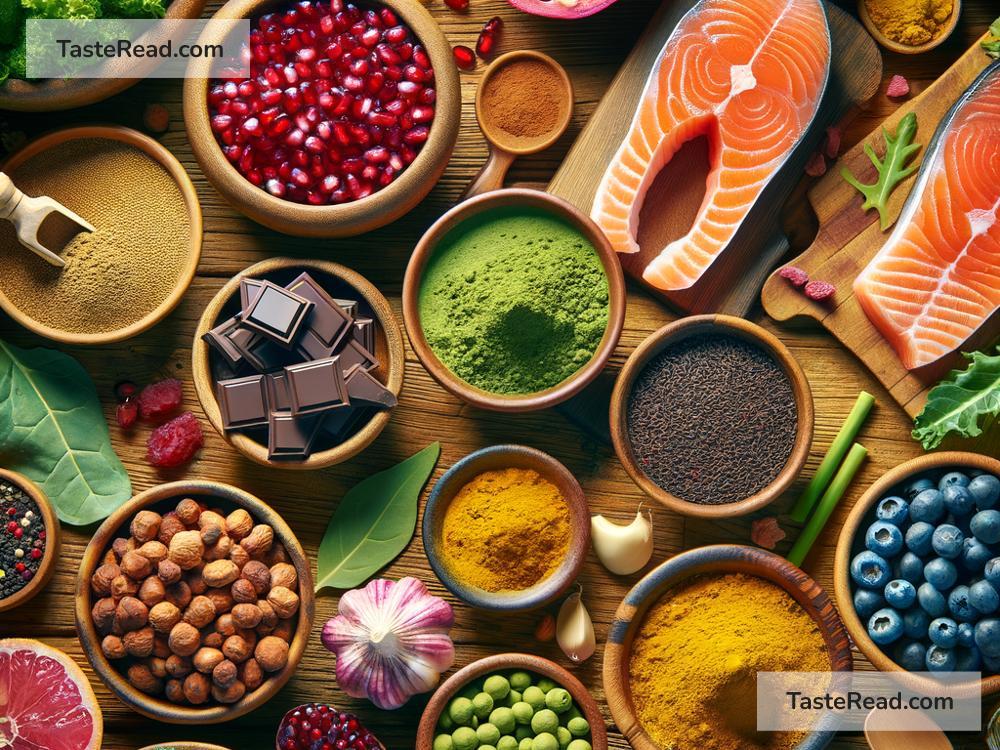Food for Enhancing Apoptosis: Harnessing Nature for a Healthier You
Apoptosis, often called “programmed cell death,” is a natural process your body uses to eliminate damaged, unwanted, or potentially harmful cells. Think of it as a cell’s self-destruct mechanism that helps keep your tissues healthy, prevents the buildup of old or abnormal cells, and fights diseases like cancer. When apoptosis works correctly, your body runs smoothly. However, if it malfunctions—either becoming too active or too suppressed—it can contribute to health problems such as autoimmune diseases, cancer, or degenerative conditions.
Fortunately, there are certain foods that may help support apoptosis and promote your body’s natural defenses. These foods are nutrient-packed and contain compounds that have been researched for their ability to encourage healthy programmed cell death. In this article, we’ll explore simple and delicious foods that may contribute to apoptosis and overall health.
What Does Apoptosis Do?
Before diving into the list of foods, let’s quickly explain why apoptosis is essential. Simply put, apoptosis acts like your body’s cleanup crew. When cells are damaged or behave abnormally—like when precancerous cells are detected—apoptosis removes them before they cause harm. This process protects your tissues from accumulating unhealthy cells and maintains balance within the body. Conversely, when apoptosis is impaired, harmful cells may continue to grow unchecked, increasing the risk of illnesses such as cancer.
Certain nutrients and natural compounds can stimulate apoptosis in potentially harmful cells. While food alone isn’t a cure for disease, incorporating apoptosis-friendly ingredients into your diet can support your overall health and boost your body’s ability to deal with cellular problems.
Foods That Enhance Apoptosis
Scientific studies have identified various compounds in foods that may trigger apoptosis in unhealthy cells. Let’s explore some of these foods and what makes them special:
1. Broccoli and Cruciferous Vegetables
Cruciferous vegetables like broccoli, cauliflower, Brussels sprouts, kale, and cabbage have earned their reputation as “superfoods.” They contain powerful compounds called sulforaphane and indole-3-carbinol, which are known to support apoptosis, particularly in abnormal or cancerous cells.
Sulforaphane activates enzymes in the body that help detoxify harmful substances, while indole-3-carbinol may help reduce the risk of hormone-related cancers. Try adding these veggies to salads, stir-fries, or soups for a health boost.
2. Turmeric
Turmeric is a bright yellow spice widely used in Indian cuisine and famous for its anti-inflammatory properties. Its active compound, curcumin, has been studied for its ability to promote apoptosis in cancer cells while leaving healthy cells unharmed. Curcumin may also help reduce inflammation, which is often linked to chronic illnesses.
Sprinkle turmeric into soups, stews, or rice dishes, or pair it with black pepper to enhance curcumin absorption.
3. Green Tea
Green tea is more than just a soothing beverage; it’s loaded with antioxidants like catechins, particularly epigallocatechin gallate (EGCG). EGCG has been studied for its potential ability to stimulate apoptosis in harmful cells. Drinking green tea regularly may help your body target damaged or abnormal cells while protecting overall health.
Enjoy a warm cup of green tea or use it as a base for smoothies or iced tea for added benefits.
4. Berries
Berries such as blueberries, raspberries, strawberries, and blackberries are rich in antioxidants and compounds like anthocyanins and ellagic acid. These nutrients help protect cells from damage and can also support apoptosis in unhealthy or stressed cells.
Snack on fresh berries, blend them into smoothies, or add them to oatmeal and yogurt for a delicious, nutritious treat.
5. Garlic
Garlic is a natural powerhouse that has been used for centuries for its medicinal properties. It contains allicin, a compound that has been linked to apoptosis in cancer cells. Garlic also supports the immune system, further boosting your body’s ability to combat harmful invaders.
Add fresh garlic to your cooking—whether it’s in pasta sauces, roasted veggies, or marinades—to enjoy its many benefits.
6. Walnuts
Nuts, especially walnuts, contain omega-3 fatty acids and polyphenols that may contribute to apoptosis in abnormal cells. Walnuts are also loaded with antioxidants that protect your cells and promote overall health.
Snack on a handful of walnuts, toss them into your salad, or stir them into baked goods.
7. Tomatoes
Tomatoes are a great source of lycopene, a powerful antioxidant that has been shown to help trigger apoptosis in abnormal cells. Lycopene becomes even more bioavailable (easier for your body to absorb) when tomatoes are cooked, so enjoy them in soups, sauces, and roasted dishes.
8. Grapes
Grapes, especially red and purple varieties, contain resveratrol, a compound found in the skin of the fruit that may help encourage apoptosis in harmful cells. Resveratrol is also known for its heart-protective and anti-aging properties.
Snack on fresh grapes or add them to fruit salads for a burst of flavor and health benefits.
Conclusion
While research is ongoing, many studies suggest that the foods mentioned above may play a role in supporting apoptosis and promoting your body’s natural defenses. Incorporating broccoli, turmeric, green tea, berries, garlic, walnuts, tomatoes, and grapes into your diet is a delicious way to enhance cellular health while enjoying a diverse and flavorful menu.
Remember, no single food or ingredient can replace a healthy lifestyle or medical treatment. However, these apoptosis-friendly foods are excellent additions to a balanced diet that encourages your body to function at its best. Pair them with regular exercise, stress management, and proper sleep for optimal health.
By making simple changes to your meals and choosing nutrient-packed ingredients, you’re not just eating for pleasure—you’re also eating to support your body’s ability to thrive.


